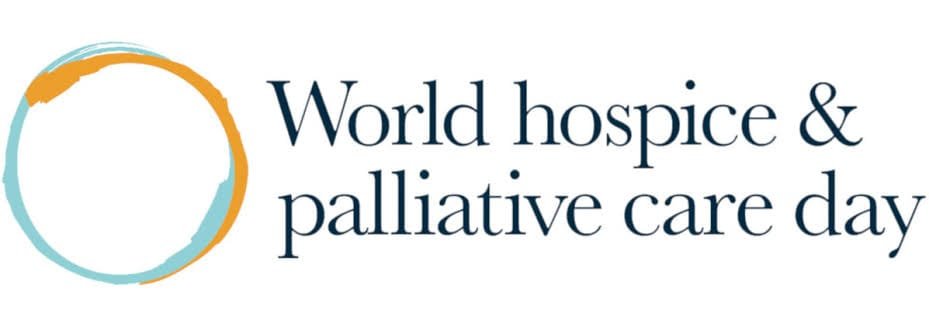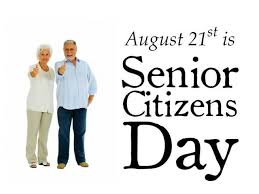World Hospice and Palliative Care Day – October 9, 2022, history, significance
World Hospice and Palliative Care Day takes place on October 9 with the goal of improving the quality of life for people affected by serious health problems. Those that have life-limiting illnesses have the right to be cared for in the way that best suits their needs and this holiday emphasizes that.
It draws attention to that belief in a myriad of ways; one of which is that every second year, a wave of concerts known as Voices for Hospices takes place to entertain and spread joy. It was originally created in 1989 by Sheila Hurton in order to raise funds and public awareness of the Princess Alice Hospice in Esher. It started as a single concert titled “Come and Sing” and it grew to become a worldwide event.
HISTORY OF WORLD HOSPICE AND PALLIATIVE CARE DAY

Throughout time, people have suffered life-limiting illnesses but there wasn’t always a system in place to make sure that their last days were comfortable. In the nineteenth century, the action of hospice care was taken on primarily by women. They were religious and philanthropic volunteers that serviced the sick across countries and continents without knowledge of each other. The attention hospice care would achieve in the next century would be because of these women.
By the twentieth century, more hospitals with hospice care were established. They became so vital that many facilities received more beds and more people joined to help the cause. The Sisters of Charity was an organization in Ireland that helped the impoverished population of Dublin in the nineteenth century, and by the twentieth, they had developed other facilities across the globe. This included St. Joseph’s Hospice, which was critical in the history of palliative care.
In 1967 Cicely Saunders influenced the modern concept of Hospice Care. Dr. Saunders directed St. Christopher’s hospice in England and she was a champion in developing the philosophy of end-of-life care and hospice practices that spread globally. During that time in the US, volunteers were the ones who cared for patients that were dying and many followed her lead.
In 1987, Dr. Declan Walsh established the first hospital-based palliative care center at the Cleveland Center. Medicare authorized formal hospice care in the 1990s and the treatment of such efforts was taken more seriously. Today, there are thousands of hospice agencies across the globe and it continues to grow. The first World Hospice and Palliative Care Day was held in 2005 and it’s been going strong ever since.
WORLD HOSPICE AND PALLIATIVE CARE DAY TIMELINE
1800s
Women Take the Lead
The first homes and hospitals are used for the purpose of hospice care pioneered by women.
1900s
Sweet Charity
Sisters of Charity develop hospice facilities across the world.
1967
Palliative Pioneer
Dr. Cicely Saunders influences the modern concept of Hospice Care at St. Christopher’s hospice in England.
1990s
Hospice Revolution
Hospice becomes an official medical subspecialty and thousands of hospice agencies operate around the world.
2005
Raising Awareness
The first World Hospice and Palliative Care Day is held along with the Voices of Hospice global music event.
HOW TO OBSERVE WORLD HOSPICE AND PALLIATIVE CARE DAY
The voice within
Attend a Voices of Hospice event and listen to beautiful music that’s sure to uplift you. There are many of these events around the globe and you can find out if one is nearby by going to www.thewhpca.org/. If you’re not close to one, you can still donate to the cause and watch videos of performances online.
Participate in an event
There are more than 1,000 events centered around hospice awareness that you can get involved in. There are cycle rallies, art exhibitions, and walk-a-thons, and more to choose from. If you can’t physically participate, you can always attend a race as a spectator and root for the community as they go.
Stay connected
You can subscribe to the Worldwide Hospice and Palliative Care Alliance (WHPCA) newsletter to receive campaign updates and material to help spread the word about hospice and palliative care. And be sure to use and follow the hashtags #WHPCD21 and #LeaveNoOneBehind21 to listen and communicate with others in the community for updates and information.
FIVE FACTS WORLD HOSPICE AND PALLIATIVE CARE DAY
Drawing focus
Each year has a different theme for the event relating to hospice and palliative care.
Name that theme
This year’s theme is: Leave No One Behind – equity in access to palliative care.
A helping hand
Palliative care providers across the globe are asked to lead and participate in palliative care awareness raising events.
More can be done
Palliative care is not part of universal health coverage or national health systems. WHPCD shines a light on the inequity in access to palliative care across the globe.
Common mistake
Palliative care is more than end of life care, it is care to help people live well in the time that they have left.
WHY WORLD HOSPICE AND PALLIATIVE CARE DAY IS IMPORTANT
Showing that you care
Terminal illness is a hard issue to face for patients and loved ones alike. They need all the support they can get to let them know that they’re not alone in this. By joining this community, you can help show that this difficult time can have times of positivity to the lives of people who truly need it.
Showing appreciation to caretakers
Showing support for caretakers who devote their time and energy to those with life-limiting illnesses helps them out considerably. Jobs like these are often a calling and having the support of people who care helps them do their job better. The more advocacy there is for hospice and palliative care, the more they can apply it to their process that will make things better for the patients they care for.
Advancing life
When more money is donated to this cause, everyone benefits from it. With more resources, they’re able to offer the best service to their patients. It provides them with the flexibility for resource allocation and ensures that the safety of those with terminal illnesses is protected to the best of their ability.
Sandeep Raiza — Content Writer, Website Designer, SEO Strategist, and WordPress Expert AI specialist delivering impactful digital solutions that drive business growth.Combining creative storytelling with technical expertise.




